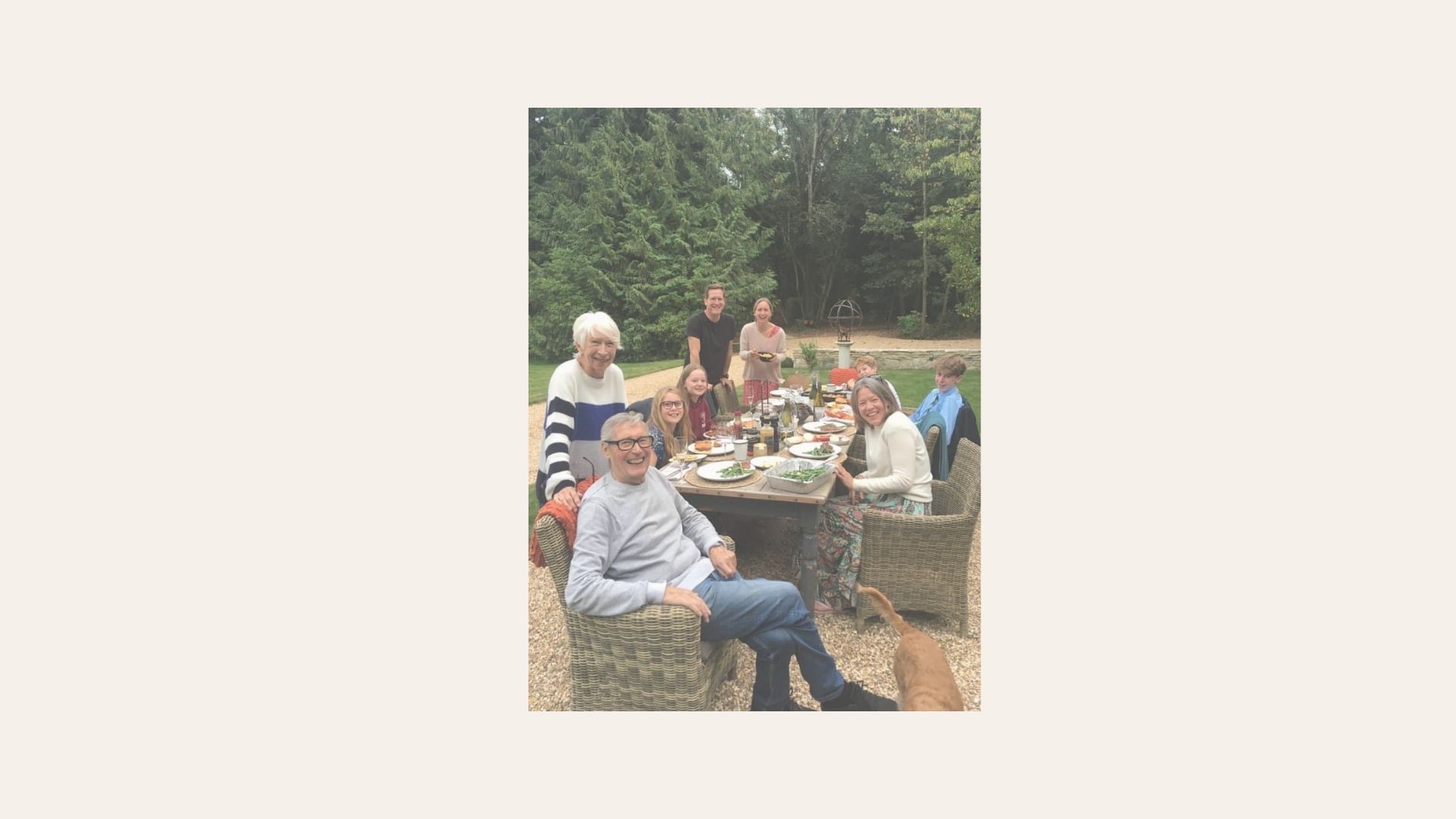We Don’t Just Survive Grief, We Metabolise It Into Meaning
Oct 06, 2025
Many of you know that Laura and I have faced the most challenging of years.
We’ve looked grief square in the eyes.
Almost overnight, we lost both of our parents, our childhood, our family home, and every precious memory those walls once held.
An invincible family unit ripped apart in a matter of months.
If the pain of losing one parent wasn’t enough, we now live in a suspended kind of grief, unable to truly mourn our mum, because she’s trapped.
Her mind shattered when she lost my dad. Within weeks, her brain chose survival over sanity. Somewhere deep inside, it decided it was safer to live in a fragmented world than to face the full weight of life without him.
She never grieved him because she never lost him.
Dementia can be a soft decline, a gentle forgetting, a retelling of the same stories.
Or it can be a trauma-induced sledgehammer: a loss of identity, of dignity, of reality itself.
For our mum, it’s the latter. Heightened paranoia, invented tormented stories, relentless fear.
And yet the only people on the planet who can calm that fear, who can still bring her peace, are Laura and I.
She may not always know our names, but she knows our being.
The weight of that knowing is enormous:
to be the only ones who can help her,
to know she feels unsafe when we aren’t there,
to picture her among strangers, unstable, unpredictable, equally lost.
That’s not grief.
That’s far beyond grief.
With grief comes closure, the ability to move forward.
But this is a different kind of pain.
There is no moving on.
She is suspended halfway, not living in this world anymore, but unable to move to the next.
And we are suspended with her, in the twisted distortion, in the endless pacing of unfamiliar hallways, in the long, cruel fade of what once was.
This is a form of suffering only those who have lived it can truly understand, reflected in the hollow faces of the loved ones who pound those endless dementia corridors with us.
And yet, somehow, we thrive. More than ever.
There’s a reason for that.
There’s neuroscience behind it.
When we experience deep loss, our dopaminergic system, the part of the brain that fuels seeking, striving, and attachment, goes into overdrive.
We start chasing meaning, purpose, aliveness.
And we do it fearlessly, because the only real fear in life is losing those we love, and we already live with that every day.
The same neural pathways that ache for what’s gone begin reaching for what might still be possible.
It isn’t denial. It’s biology.
Grief and motivation share circuitry.
They become different sides of the same coin.
The same pain that breaks your heart can ignite your purpose.
This is why, after trauma, many people feel an urgent pull to create, to serve, to love harder.
It’s why you might see your life differently, feel time more vividly, care less about noise and more about what’s real.
For those of us who are neurodivergent, whose nervous systems already experience the world in high definition, that drive can become even more pronounced.
We don’t just survive grief. We metabolise it into meaning.
Where we feel dread, we find drive.
Where we feel helpless, we find hope.
Where we see misery, we find motivation.
Because the biggest emotions really do exist on the same plane.
Maybe this is the brilliance of the human brain, and the heartbreak of it too.
Because maybe the point was never to move on,
but to live alongside it, the ache, the love, the reminder that grief rewires us to feel life more deeply.
And perhaps without ever experiencing deep loss,
we would never have access to such deep joy, such fierce fire, such meaning.
And perhaps that is the last lesson our mum and dad have taught us.
Contact Us!
Join our mailing list to receive the latest news and updates from our team.
Don't worry, your information will not be shared.
We hate SPAM. We will never sell your information, for any reason.

